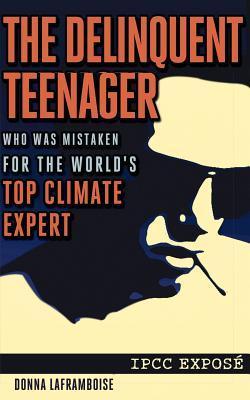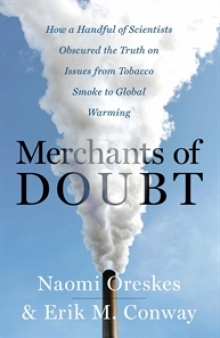This post was orginally published at DeSmogBlog.
CANADIAN blogger and climate science sceptic Donna Laframboise has flown off for a tour of Australia to tell anyone willing to listen that the world’s foremost body on climate change, the United Nations’ Intergovernmental Panel on Climate Change, is something resembling a shambling mess.
Laframboise’s trip has been organised by free market think tank the Institute of Public Affairs, which has a long history of promoting doubt about the science of human-caused climate change and the risks of the unmitigated burning of fossil fuels.
The blogger, who describes herself as an investigative journalist, gets to visit Sydney, Melbourne, Brisbane and Perth to promote her book “The Delinquent Teenager Who Was Mistaken For The World’s Top Climate Expert – IPCC Expose.”
The IPA describe’s Laframboise as a “world renowned author” which is stretching credibility to breaking point. This “world renowned author” has written just two books. Her first was about feminism published in 1996. The Delinquent Teenager is her second, and is currently ranked #17952 in the book seller Amazon’s Kindle store [#41,202 in the U.S. Amazon Kindle Store.]
Essentially the book makes three central claims. The first is that the IPCC has engaged several young scientists which Laframboise says goes against the IPCC’s claims that they use the world’s top scientists. A second is that some of the scientists working on some of the reports have links to environmental groups which are not always made clear. A third is that the IPCC reports use too much non-peer reviewed literature.
All of these arguments are used as a proxy to question the science. Yet the IPCC’s main climate change reports (the latest being the 2007 Assessment Report 4, the next being AR5 currently being worked on by more than 800 authors and expected some time in late 2013 or early 2014) don’t actually do any science.
They are reviews – albeit almighty ones – of research being conducted at institutions around the world and of scientific papers published in journals. This means that even if the IPCC was found to be run by a small group of mentally-challenged llamas, this wouldn’t affect the science on human-caused climate change. In essence, Laframboise’s book is one giant strawman argument.
Continue reading “Donna Laframboise and The Delinquent Think Tank”

